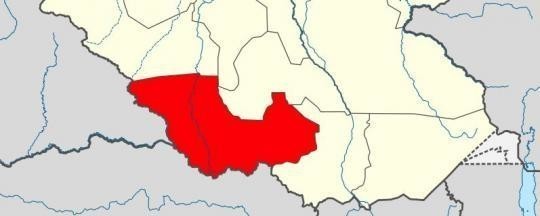A two-day workshop on the dissemination of information on peaceful disarmament of civilians concluded in Yambio, Western Equatoria State, on Wednesday.
The workshop, conducted by the Bureau for Community Security and Small Arms Control (BCSSAC), and aimed at voluntary disarmament drew together 36 participants, including chiefs, civil society, organized forces, and churches.
Speaking during the closing of the workshop on Wednesday the state’s cabinet affairs minister, John Barayona, said the priority of the state government is to implement the peace agreement.
“On behalf of the government, currently our first agenda is the revitalized peace agreement. You can’t talk about peace if there are guns which are not under your control, never,” Barayona said. “And that is why there are unknown gunmen. Why should they be unknown? This means you are aware of somebody doing something but you don’t want to name them. The military and security have information. Whenever something happens they are already there and will get the right information.”
Rev. Mama Mary Angelo, a participant from the church group, said she is going to spread the message through her church and make sure it goes to people on the ground. She appealed to politicians to avoid tribalism in society.
“For us in the churches, we have no problem because every Sunday we used to preach peace, talk to our people and encourage our people. Even in our diocese, we have our pastors, evangelism, women, and youth groups. We have so many people and we talk to them to do what is good to bring peace,” Rev. Angelo said.
For his part, Col. Louise Malish, a participant and the state director of the fire brigade, called on the government to take care of soldiers who are in charge of stores after the disarmament so that they don’t sell firearms.
“When firearms are brought, they are put in a store. Who looks after the store? It is a soldier. So if a gun leaves a store and ends up in the hands of a civilian, then it is a soldier who provided it,” Col. Malish warned. “So, if guns are recovered from civilians and put in stores then a well-trained soldier will ensure that it is kept there in storage. If the soldier in charge of stores is not well trained in protecting weapons in storage that means if he faces economic hardships he will still sell guns to civilians. So soldiers have to be well trained and their welfare well looked after.”
Mark Akim Maze, the director and finance team leader in Western Equatoria State, said the training was to prepare communities on how to hand over their arms and was very fruitful.
“The participants were very active and I am grateful to them for catching up on the teaching of civil disarmament strategy. We have covered many things within these two days,” Maze said, “We covered firearms, the process of disarmament, conflict dynamics, international legal framework policy, measures to control supply, measures to reduce demand and collection. We learned how to handle small arms in Western Equatoria. We learned many things, even planning and implementation.”




